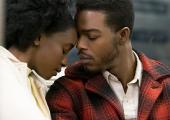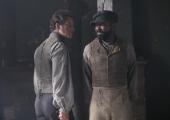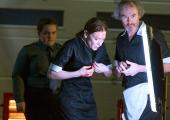Keith? A Comedy, Arcola Theatre review - Molière mined for Brexit-era laughs

Canny update of a 17th-century classic locates real laughs in today's censorious landscape
Breathe in the love and breathe out the bullshit. After the Arcola Theatre's founder and artistic director Mehmet Ergen read Keith? A Comedy, a wild spin on the quasi-ubiquitous (these days, anyway) Tartuffe by the critic and writer Patrick Marmion, the theatre moved to cast and stage the play in a matter of weeks.









